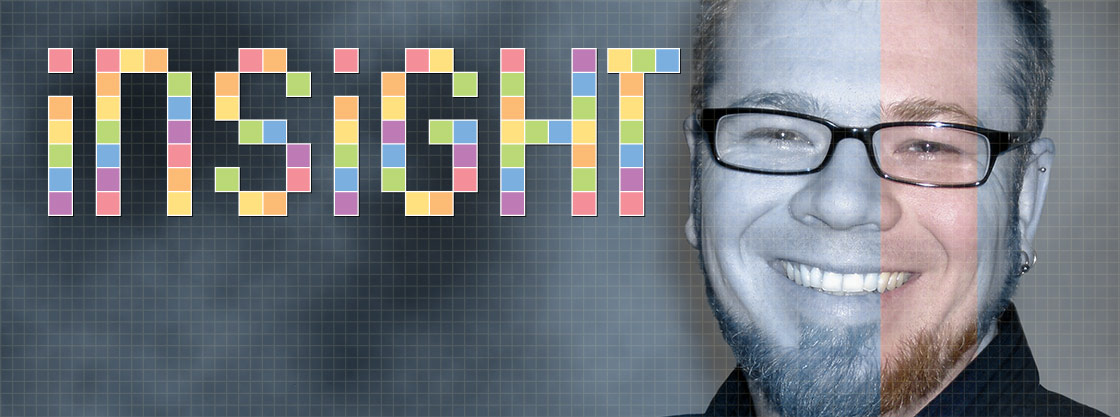This is an excerpt from Junior Skeptic 50 (published in 2014 inside Skeptic magazine Vol. 19, No. 1), which is a ten-page biography of Sagan emphasizing his work in scientific skepticism. A different short excerpt of another section of this story appeared previously in Skepticblog.
Junior Skeptic is written for (older) children, and does not include endnotes, though I often call out important sources in sidebars or the text of the story itself. However, I’ve included some relevant citations here for your interest:

Cover of Junior Skeptic 50, inside Skeptic magazine Vol. 19, No. 1. (Illustration by Daniel Loxton.)
Carl Sagan cared a lot about kooky, far out, pseudoscientific topics. He knew this was quite unusual. He introduced a book section on these fringe science topics by saying, “The attention given to borderline science may seem curious to some readers. … The usual practice of scientists is to ignore them, hoping they will go away.”1 He wished other scientists would care more, and that they were more willing to share their criticisms in public:
I believe that scientists should spend more time in discussing these issues…. There are many cases where the belief system is so absurd that scientists dismiss it instantly but never commit their arguments to print. I believe this is a mistake.2
So you might imagine Sagan was delighted in the mid-1970s when scientists, philosophers, magicians, and journalists began to come together to study and critique paranormal claims. And indeed, he did embrace this new development—but not without concerns, and not right away.
“Organized” skepticism brought together people who had already been doing skeptical work on their own. Sagan joined forces with Martin Gardner (whose book Fads and Fallacies in the Name of Science had so influenced Sagan in high school3), magician James Randi (already a thorn in the side of fake psychics) and many others. Skeptics found that their interests went together naturally, because paranormal claims are often similar in many ways. But this did not mean that these skeptics all had the same approach to those related topics!
The Promise and Problems of Organized Skepticism
Organized skepticism’s first project was a statement called “Objections to Astrology.” It was published4 in a magazine in 1975 and mailed to newspapers all over the country. Written by an astronomer Sagan admired, the statement said “there is no scientific foundation” for the idea that the positions of the planets influence our personalities or destiny. Almost two hundred scientists signed the statement, endorsing its blunt conclusion: “We believe that the time has come to challenge directly, and forcefully, the pretentious claims of astrological charlatans.” Some of the scientists who signed were Nobel-prizewinners; some were Sagan’s personal friends. Sagan was asked to add his name, too. But he didn’t.
Why not? “I struggled with his wording, and in the end found myself unable to sign,” Sagan reflected, “not because I thought astrology has any validity whatever, but because I felt (and still feel) that the tone of the statement was authoritarian.” In Sagan’s opinion, the statement didn’t really explain what was wrong with astrology. Instead, it boiled down to a “stuffy dismissal by a gaggle of scientists” who sneered at anyone foolish enough to believe such superstitious nonsense. “What I would have signed,” Sagan said, “is a statement describing and refuting the principal tenets of astrological belief. Such a statement would have been far more persuasive than what was actually circulated and published.”5
Whatever its flaws, “Objections to Astrology” led in 1976 to a conference about skepticism,6 and from that to the creation of North America’s first modern skeptical organization (called CSICOP—the Committee for the Scientific Investigation of Claims of the Paranormal). With Gardner and Randi and others, Sagan became a founding member. He promoted the group in his books and articles, and he promoted many individual skeptics as well—even if he didn’t always agree with how they went about things.
Sagan believed skeptics “are performing a courageous and essential social service for the rest of us.”7 But he never lost his concern about how skeptics did that work. Skeptics sometimes cut corners in the quality of their research, he warned: “Sometimes it looks as if the skeptical conclusion came…before, not after, the evidence was examined.”8 He also cautioned skeptics strongly against an “us and them” attitude:
You can get into a habit of thought in which you enjoy making fun of all those other people who don’t see things as clearly as you do. This is a potential social danger of an organization like CSICOP. We have to guard carefully against it.9
Sagan considered it not only unhelpful but also unfair when skeptics act “superior and contemptuous.” He added, “I’ve even sometimes heard, to my retrospective dismay, that unpleasant tone in my own voice.”10 I’ve often wondered if Sagan had a specific occasion in mind as an example. Some skeptics and others have argued that Sagan was not careful enough in his research when he criticized the pseudoscientific theories of Immanuel Velikovsky.11 Some also felt that Sagan was unkind in his 1974 debate with the elderly Velikovsky. Science fiction author Jerry Pournelle said “Sagan wisecracked through the whole ‘debate’…using his verbal skills to ridicule the old man. It was as shameful a thing as I ever saw Carl do.”12 (See Junior Skeptic 49 for the story of Velikovsky’s life.)
Two decades after his debate with Velikovsky, near the end of his life, Sagan called again for kindness. Skepticism can be “heroic,” he said. But we must always remember that:
supporters of superstitions and pseudoscience are human beings with real beliefs, who, like the skeptics, are trying to figure out how the world works and what our role in it might be. … If their culture has not given them all the tools they need to pursue this great quest, let us temper our criticism with kindness. None of us comes fully equipped.13
References
- Carl Sagan. Broca’s Brain. (New York: Ballantine Books, 1993.) p. xii
- Carl Sagan. “Night Walkers and Mystery Mongers: Sense and Nonsense At the Edge of Science.” Skeptical Inquirer. Vol. 10., No. 3. Spring, 1986. pp. 224–225 [Excerpted from Broca’s Brain]
- See Carl Sagan. The Demon-Haunted World. (New York: Random House, 1996.) pp. 66–69 for Sagan’s description of his first eye-opening exposure to the skeptical literature—Charles Mackay’s Extraordinary Popular Delusions and the Madness of Crowds and Martin Gardner’s Fads and Fallacies in the Name of Science—and the impact this had upon his view of the world.
- Bok et al. “Objections to Astrology.” The Humanist, Volume XXXV No. 5, September/October, 1975. pp. 4–6
- Sagan (1996.) pp. 302–304
- The 1976 annual American Humanist Association conference, titled “The New Irrationalisms: Antiscience and Pseudoscience.” It took place in Buffalo, New York, April 30–May 1, 1976. For details, see Kendrick Frazier. “From the Editor’s Seat: Thoughts on Science and Skepticism in the Twenty-First Century (Part One).” Skeptical Inquirer Vol. 25, No. 3. May/June, 2001. pp. 46–47. See also Kendrick Frazier’s 1996 history of CSICOP, which was published originally in The Encyclopedia of the Paranormal, edited by Gordon Stein (Amherst, New York: Prometheus books, 1996).
- Carl Sagan. “The Fine Art of Baloney Detection.” Parade, February 1, 1987. pp. 10–11
- Sagan (1996.) p. 297
- Carl Sagan. “The Burden of Skepticism.” Skeptical Inquirer, Volume 12.1, Fall 1987. pp. 41–42
- Sagan (1996.) p. 297
- See for example Philip Plait. Bad Astronomy. (New York: John Wiley & Sons, 2002.) pp. 184–185
- Jerry Pournelle. “The Velikovsky Affair and Other Musings.” http://www.jerrypournelle.com/science/velikovsky.htm (Accessed May 18, 2015)
- Sagan (1996.) p. 298


 Ten-page illustrated Junior Skeptic stories are bound within each quarterly issue of SKEPTIC MAGAZINE.
Ten-page illustrated Junior Skeptic stories are bound within each quarterly issue of SKEPTIC MAGAZINE. 








Guys, this thread has veered far enough off topic that it seems best to close the comments on this post.
Wow, JW. Good with the ad hominen attack. Typical of climate alarmists when anybody challenges their orthodoxy. Skepticism of both sides of the climate debate are healthy and to be encouraged. Wait, I forgot, Al Gore said the debate is over. Never mind.
Alan, in your professional opinion, would you consider this:
“The third link is to Skeptical Science, which is thought by many to be run by biased activists. I tend to find their summaries on subjects I’m familiar with to be rather short. Something that is not widely known outside climate circles is that someone who follows the climate blogs went through the sites pages that were open to the public and found some of its editors (including founder John Cook) admitting they thought the ’98 hockey stick paper was invalid:”
…to be which of the following?
A) a rebuttal of points raised in an article on the Skeptical Science site, linked to in a past conversation, or:
B) an attack against the character of the Skeptical Science site and the people who write for it
How about this?
“Wow, JW. Good with the ad hominen attack. Typical of climate alarmists when anybody challenges their orthodoxy.”
Is it:
A) a rebuttal of the content of my criticism of Canman’s comments, which seem to be more about defaming climate scientists than they are about “debate”, or is it:
B) an attack against my character, and the character of those who criticize climate change deniers in general?
What was the term for indulging in B) in lieu of attempting A), again? It’s almost like it’s at the tip of my tongue, but I just can’t…quite…remember…
Now, as for this:
“Skepticism of both sides of the climate debate are healthy and to be encouraged.”
…I agree, albeit that running a PR war against climate scientists doesn’t exactly seem like “skepticism” to me.
I’d also like to encourage you to follow your own advice.
On environmental topics (especially Climate Change), skeptic movement type skeptics seem to have developed taboos against criticizing certain prominent figures such as Paul Ehrlich, Rachel Carson or Michael Mann. There also seems to be a taboo against mentioning serious critics such as Judith Curry, Roger Pelkie Jr, Bjorn Lomborg or Steve McIntyre.
The refusal to debate when there are so many important policy issues at stake is inexcusable!
Hello Canman, care to explain why you saw fit to write this from the “Willie Soon be Gone?” article on this site?
“The third link is to Skeptical Science, which is thought by many to be run by biased activists. I tend to find their summaries on subjects I’m familiar with to be rather short. Something that is not widely known outside climate circles is that someone who follows the climate blogs went through the sites pages that were open to the public and found some of its editors (including founder John Cook) admitting they thought the ’98 hockey stick paper was invalid:”
Go fetch the link to McIntyre’s site if you like. I won’t re-post it myself.
The reason I’m reminding you of this is that anyone can go to the Skeptical Science site to see what John Cook and the other editors there ACTUALLY think of Mann’s work, and why. It seems that neither you nor McIntyre has learned a thing from Climate Gate, nor how much shame that fiasco brought upon climate change deniers. You continue to do nothing but lie and misrepresent what climate scientists say and do, then cry victim whenever someone calls you out on it.
JW, I apparently have made a mistake about John Cook. I had remembered this statement attributed to him:
“I have to tell you that you should warn those doing that particular one to stay away from Mann’s 2008 paper if they take this topic as it seems it has actually been invalidated by climate audit (as much as I hate to admit it they are right about the issue of the study failing verification statistics past 1500 for one)”
The quote is actually by Robert Way. Mark Steyn mistakenly attributed it to John Cook in this column:
http://www.steynonline.com/6125/mann-about-the-house
Thanks for your diligence.
So, if I am to understand you correctly, the only wrong that you’ll admit to here is that you screwed up and maligned the WRONG climate scientist? Based on material hacked from the Skeptical Science forums? Which, in the off-chance that it wasn’t outright spoofed or tampered with, was nonetheless posted to a denier site well known for deliberately distorting the contents of emails from the earlier CRU hacks? Did I get that straight?
Oh, and perhaps you’d some more mention of various climate change critics? Here you go:
…Steven McIntyre…
http://www.desmogblog.com/steve-mcintyre
http://rationalwiki.org/wiki/Steve_McIntyre
…Ross McKitrick…
http://www.desmogblog.com/ross-mckitrick
http://rationalwiki.org/wiki/Ross_McKitrick
…and the Hockey Stick “Controversy” in general:
http://www.skepticalscience.com/broken-hockey-stick.htm
…you forgot to mention WUWT, but there’s always the Hot Whopper blog. If you’re into that sort of thing, that is.
I’ll be happy to spend some of my time re-posting these links every time I see you going after Mann or advertising for various denier sites on an article here.
Cheers!
JW, I just looked at the two “rationalwiki” links. I was shocked at how incredibly childish and shrill the two entries were. The site would be more aptly named “rhetoricalwiki”, although it is not even good rhetoric. I would think that true devotees of “rationalism” would find it an embarrassment.
Today, we see an authoritarian spirit among those who smear skeptics of anthropogenic global warming. Science, being nothing more than a method of thought, isn’t at fault. The issue lies elsewhere — in ego, groupthink, and the drive for power.
In particular, whenever anyone says that “the science is settled” on a topic, they betray a basic lack of understanding of what “science” actually is. Moreover, when there is a supposed “consensus” on a topic, there is all the more reason to question not only the “consensus,” but how it is defined, and — if it is authentically a “consensus,” how it was achieved.
http://tinyurl.com/multhypo
So the science is not settled on anything, and the Earth may turn out to be flat.
Unfortunately skepticism, evidence and debate are diminished and suppressed under the current political environment. Skeptical of GMO labeling…since every food on the plate is already modified in son way? Well, you are a lackey of big agra. Skeptical of the efficacy of government programs like Medicaid or Obama care? Then you are heartless. Skeptical of Ferguson? You’re a racist. Skeptical of global warming? You’re a denier.
It is easy to forget that the “hard-wired” biases in the brains of pseudoscientists are equally present in the brains of skeptics, and just as difficult to recognize, much less control. In my own field of medicine, I see this in Dr. Harriet Hall’s dismissal of such discoveries as phytonutrient induction of Nrf2 activation, a thoroughly evidence-based biochemical discovery that will have great impact on healthcare and longevity efforts (see Biogen’s recent FDA-approved synthetic drug, Tecfidera, an Nrf2 activator). The fact that the FDA system relegates any plant-based compound to the suspicious field of “nutritional supplements” seems to cause an almost irresistible expression of the arrogance of which Sagan spoke, complete with a confirmatory bias that dismisses supportive evidence in favor of support for long-held positions. The open mind is a powerful tool for discovery, even in skeptics.
This piece makes some very similar points to my article in Fortean Times 322: 52-3, “‘Skeptics’ and believing unbelievers”.
There is an arrogance in some skeptics which is deeply unpleasant — and also an intellectual carelessness and laziness. Karl Popper was aware of this, and criticised such attitudes.
Near the end of my article I say that such hardline skeptics “are committed believers in an anti-religion, which might just as well be a religion; they are proselytising fundamentalist atheists – and no less disagreeable than any other proselytising fundamentalists”.
So those proselytising fundamentalists who chop off heads and prostitute pubescent girls are only as disagreeable as those like Richard Dawkins and his ilk who question the beliefs that fuel such actions? I had not realized atheists were so bent on forcing us to their will.
Perhaps you could let us know from which online college you bought your doctorate so we may all access such enlightening novel logic.
Thanks Daniel; I have always loved those quotes by Sagan. He obviously mellowed as the “Annie” factor took hold :)